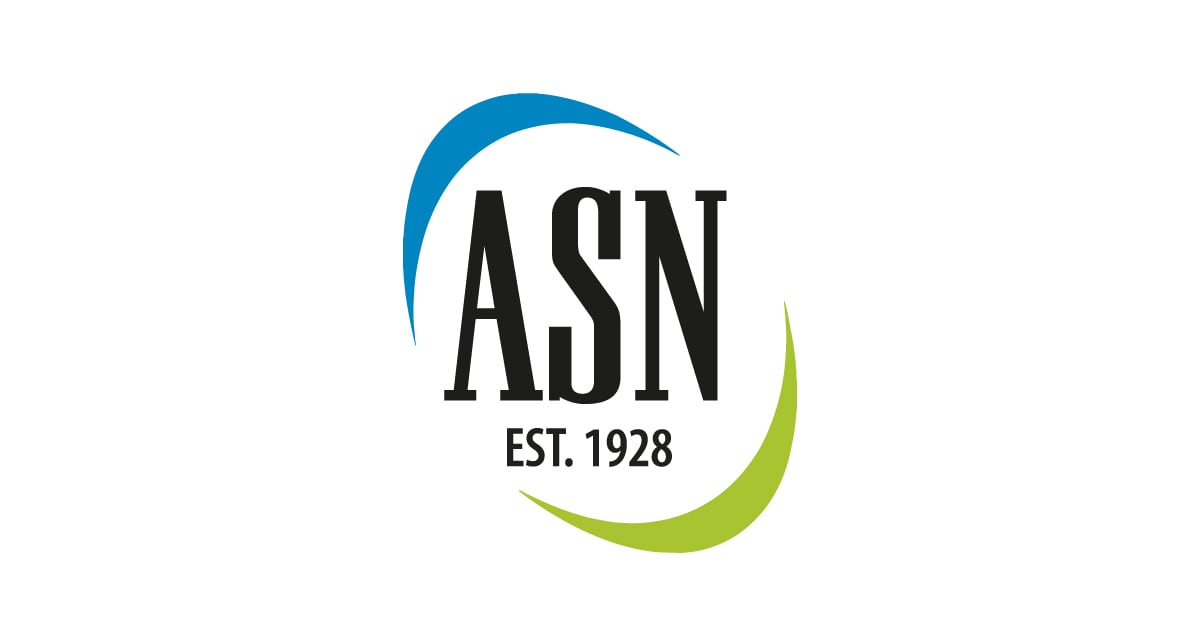In honor of National Breastfeeding Month and World Breastfeeding Week, we interviewed ASN member Sharon M. Donovan, PhD, an expert on the science and health benefits of breastfeeding.

Dr. Donovan’s research focus is health issues facing children and families, including promoting a healthy gut, brain, and microbiome through nutrition, preventing childhood obesity and picky eating behaviors. Her studies show that the first 1,000 days of life, spanning from conception until age 2, are of utmost importance for positive health outcomes.
Dr. Donovan is a Professor and the Melissa M. Noel Endowed Chair in Nutrition and Health and Director of the Personalized Nutrition Initiative at University of Illinois Urbana-Champaign.
1. How long have you been a member of ASN and the Maternal, Perinatal and Pediatric Research Interest Section (RIS)? In your opinion, why is this RIS important?
I have been a member of ASN since 1985, when I joined as a graduate student. I have been a member of the Maternal, Perinatal and Pediatric RIS since it was known as the Human Milk and Lactation and then the Lactation RIS!
2. What has your research shown you about the importance of quality nutrition during the first 1000 days of life?
My research is focused on the impact of breastfeeding and human milk components on the recipient infant. Specifically, my research has investigated how human milk oligosaccharides and bioactive milk proteins and lipids impact neonatal gut development, microbiome composition and function, immune development and function and cognitive development, in collaboration with my colleague Ryan Dilger. Much of this research is conducted utilizing the piglet as a preclinical model as our studies in human infants is limited by the lack of non-invasive approaches.
To address this challenge, in collaboration with Drs. Robert Chapkin and Ivan Ivanov at Texas A&M University, we have shown that we can use infant stool samples to simultaneously probe the cross-talk between the microbiome metagenome and gene expression of exfoliated intestinal cells (exfoliome). Using this non-invasive approach, we have shown that intestinal gene expression differs between breast- and formula-fed infants (doi: 10.1152/ajpgi.00004.2010) and that the infant gut microbiota metagenome virulence characteristics concurrently varied with immunity-related gene expression in epithelial cells between the formula-fed and the breast-fed infants, indicating cross-talk between microbial and host gene expression (doi: 10.1186/gb-2012-13-4-r32). Going back into the piglet model, we recently showed that the transcriptome of exfoliated epithelial cells in stool contain gene signatures from both small and large intestinal mucosa affording a noninvasive approach to assess gut health and function. (doi: 10.1152/ajpgi.00017.2021)
*Also see The Role of Human Milk Oligosaccharides (HMOs) in Health and Development in the First 1000 Days (Free!) which includes a presentation by Dr. Donovan.
Breastfeeding: The Latest Science & Resources
Access the latest research from ASN journals, recorded video presentations, and more in this collection that is free for the month of August.
3. What are a few of the hottest research topics in lactation, breastfeeding and infant nutrition?
Understanding how dietary intake in the first 1000 days influences short and long-term health outcomes is a key research need to inform precision nutrition interventions and support public health recommendations. For the first time, the 2020 Dietary Guidelines for Americans included specific recommendations for pregnant and lactating women and infants from birth to 24 months of age. I was a member of the Scientific Advisory Committee and we identified many gaps in the literature, particularly for lactating women, nutrient requirements for infants and toddlers and human milk composition.

4. Are there any topics specific to breastfeeding and/or maternal & infant nutrition that you think are in need of more research?
As noted above, more research is needed to determine the nutritional needs of lactating women, infants and how maternal diet influences human milk composition. Much of the published data on human milk nutrient composition is 30-50 years old and does not reflect current dietary intakes or state of the art analytical approaches. Fortunately, there are some on-going internationally representative studies which will provide updated information over the next few years.
In addition, I have been participating in the BEGIN (Breastmilk Ecology-Genesis of Infant Nutrition) project which hopes to advance research focused on the maternal, infant and environmental factors influencing human milk composition, its effects on the infant and how to communicate that information. In particular, BEGIN wants to highlight the role of human milk as a complex biological matrix, rather than a collection of individual nutrients and bioactive factors.
5. How best can the nutrition community (providers and researchers) come together to support advances to optimizing nutrition during lactation and early in life?
Since pregnant and breastfeeding women and their children frequently interact with health-care providers, I believe that this is an optimal time for providers to educate and encourage expecting parents on how important the first 1000 days are in their child’s long-term health. ASN should take the opportunity to engage in bidirectional exchanges of information with practitioners and could offer various types of continuing education to provide the most up-to-date information on nutrition research and evidence-based clinical care.




